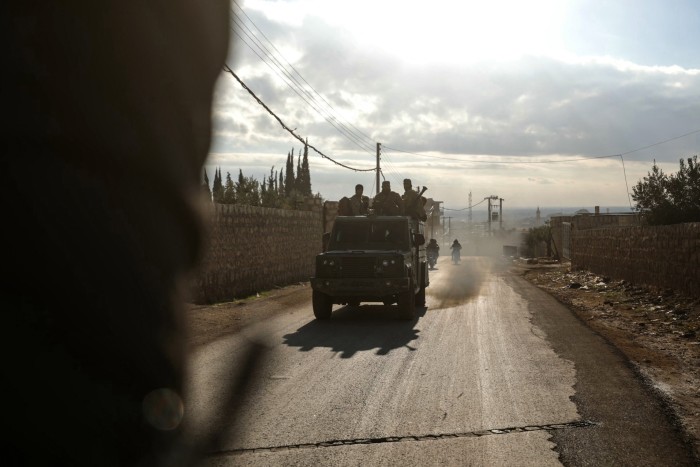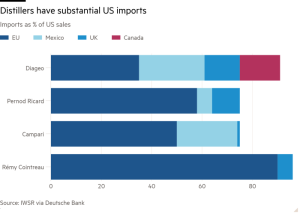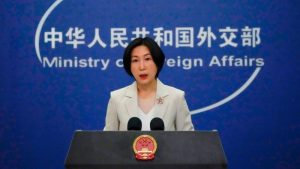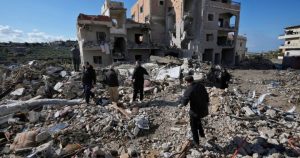Syrian Islamists launch major offensive against Bashar al-Assad’s regime

Unlock the Editor’s Digest for free
Roula Khalaf, Editor of the FT, selects her favourite stories in this weekly newsletter.
Syrian Islamist rebels have launched their biggest offensive in years against President Bashar al-Assad’s forces, capturing at least 15 villages and attacking military sites as they surge towards the city of Aleppo.
The advance eastward by Hayat Tahrir al-Sham (HTS), the ruling militant group in the northwestern Idlib region, and allied factions is the first serious challenge to Assad and his backers since Moscow and Ankara agreed a ceasefire in 2020 over the opposition-held area.
The Syrian army described the continuing offensive as “a huge and large-scale terrorist attack . . . using medium and heavy weapons”, according to a statement carried by Damascus’s state news agency. HTS is listed as a terrorist organisation by the US state department.
The territory held by HTS and other factions has been the last remaining patch of opposition-held land since Assad, backed by Iran and Russia, crushed the rebellion that grew out of the country’s 2011 popular uprising.
The media office of HTS’s “Syrian Salvation Government” claimed that the militants had taken 100 square kilometres of territory since launching the attack.
The advance shows how the balance of power between forces in civil war-wracked Syria has been altered by a year of conflict in the wider Middle East. While Assad brutally crushed Syria’s armed uprising, he is under pressure on multiple fronts and presiding over a shattered nation that has become an arena for great power competition.
Tehran-backed militia groups and Russian forces have propped up Assad’s regime, while Turkey has backed rebels in the last bastion of opposition-held territory and a small number of US troops remain in eastern Syria to support the fight against Isis.
The Israeli military has been striking weapons depots and Iran-linked militants in Syria regularly since Palestinian militant group Hamas attacked Israel on October 7 last year. Israeli Prime Minister Benjamin Netanyahu on Tuesday warned Assad that “he is playing with fire”.
For the Syrian rebels, “this is a once-in-a-lifetime opportunity”, said Dareen Khalifa, senior Syria analyst at Crisis Group. “When else are you going to ever get the world, the US, Israel and everyone else going after their rivals?”

Ömer Özkizilcik, an Ankara-based non-resident fellow with the Atlantic Council think-tank, said: “The most important thing HTS and Syrian rebels could gain is the potential to threaten Aleppo city and to cut off the M5 highway, which is the most strategic in Syria.”
The rebels’ advance would help to secure Idlib, he said, adding: “The regime’s ability to conduct strikes would be reduced and they . . . can deploy against Assad, Iran and Russia by being able to target where it hurts.”
Aleppo had been a rebel bastion, but the regime retook Syria’s second city in 2016 after a months-long siege and relentless Russian air strikes.
Sunni jihadi groups in the north-west say they are responding to an increase in attacks on them by Assad-loyal forces, which on Thursday responded with air strikes in a bid to push back the rebels’ offensive.
But the rebels are also taking advantage of an intensifying Israeli campaign against Iranian-linked Shia groups in Syria, including the powerful Lebanese militant movement Hizbollah.
Israel has long feared that Tehran-backed factions could stage attacks on Israel from Syria and has built up defensive positions in the occupied Golan Heights. Israel has bombed border crossings between Lebanon and Syria, and an attack last week on militants in the Syrian city of Palmyra killed dozens of people, according to Syrian state media.
The Syrian rebels began their offensive the day after Israel agreed to a ceasefire with Hizbollah, following two months of intense air strikes and an invasion of southern Lebanon.
The offensive also comes despite signs of a potential rapprochement between Ankara and Damascus, with Turkey’s President Recep Tayyip Erdoğan in July saying he hoped to meet Assad for the first time in more than a decade. Turkey controls a swath of northern Syria that extends beyond Idlib and contains smaller rebel factions.
But the rebel advance also suggested that Ankara judged its efforts to revive relations with Damascus had stalled: “It appears that the understanding was in Ankara that normalisation had failed, and they gave the green light for this offensive,” Özkizilcik said.
Najat Rochdi, the UN’s deputy special envoy for Syria, last week warned the Security Council that this year was “on track to be the most violent since 2020” in Syria. “The potential for even greater devastation looms,” Rochdi said.
#Syrian #Islamists #launch #major #offensive #Bashar #alAssads #regime






